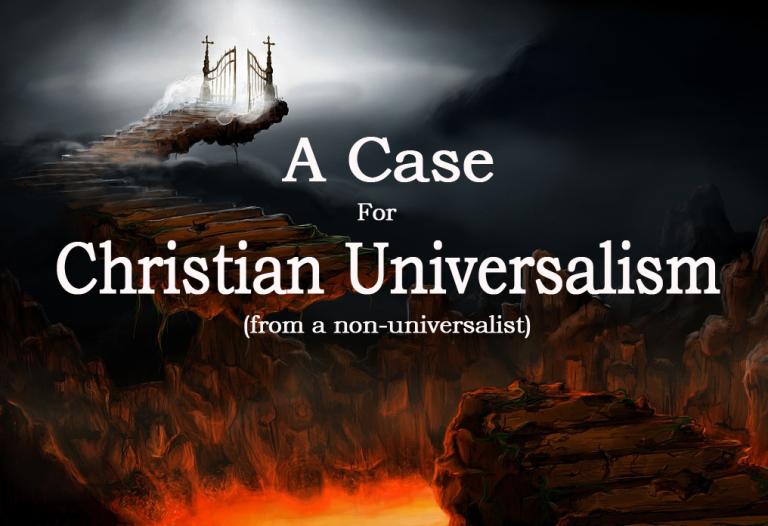
I’ve heard a lot of arguments as to why women are prohibited from teaching and preaching.
Just kidding.
There aren’t a lot of arguments– there’s just a lot of people quoting a couple of passages from Paul’s epistles in a way they believe “proves” that ministry positions which involve leading men, or teaching or preaching to men, is a boys-only job.
Here’s 10 reasons why I think today’s Christians should be affirming and supporting women serving in church leadership, whether it’s leading, teaching, or preaching the Gospel:
10. The testimony of Scripture bears witness to female leadership in both the Old Testament and the early Church.
The Bible, as a whole, was written over a considerable span of time and from within various ancient cultures– most of which were patriarchal and viewed women as radically inferior at best. And while the Bible has plenty of traces of those ancient mindsets about women, it is also true that we see God raise up strong female leaders both in the Old Testament and in the New Testament church.
If women are forbidden from teaching or leading men, God really messed up by letting those parts get included.
9. Jesus trained female disciples– and they were the most loyal ones.
The men?
They fell asleep when he begged them to keep him company. One betrayed him. His right-hand-man publicly denied him three times. The rest abandoned him in his most critical moment. In fact, one of them even ran away naked (Mark 14:51-52).
But his female disciples?
The last people at the cross? Women.
First people at the tomb? The women.
8. God chose two women to become the first evangelists who proclaimed the Gospel– and they proclaimed it to men.
The Gospel, by definition, is the life, death, and resurrection of Jesus. This is the “Good News” we are called to preach to the ends of the earth.
And who were the first ones to preach it? You guessed it– the female disciples were the very first to proclaim the Good News, and they proclaimed it to the men.
7. Paul was not writing a manifesto to every church in every time, but wrote to specific churches facing specific issues that are not completely known to us.
The argument against women teaching, preaching, or leading in church, is often centered around a few passages from Paul. But here’s the problem: Paul wasn’t writing a general manifesto on how all churches should be run in all times and all cultures, and I think he’d be aghast that we often treat it that way.
“Epistles” mean “letters”. Paul was writing specific letters to specific people and specific house churches. He addressed their specific questions and their specific challenges– and we don’t always know for sure what those were, or what situations he intended specific advice/instructions to be applied in. Since we are not the people Paul was writing to, and our church context is not the same as theirs, it would be dangerous at best to approach his letters as being blanket prescriptions for all times and circumstances.
6. If Paul was issuing a decree for all churches in all times, he completely contradicts himself in the same letter and elsewhere.
Paul says that women should be “silent” in church, you say? Well, in his letters he references female church leaders and references women prophesying in church. If his other statements were intended to be blanket prescriptions for all circumstances, even he missed the memo.
5. The cultural context of Paul’s letters must be considered—some instructions were clearly meant to be applied within a specific cultural context.
Try this: the next time some guy says that women can’t preach and “God’s word never changes” and that we’re supposed to just “read and obey what’s written”, ask him if he kisses other men when he says hello to them at church– because Paul says to do that in 2 Corinthians 12:12.
You’ll demonstrate the point on how we all– even fundamentalists– seem to innately realize that the context of a passage matters.
4. Jesus said the Holy Spirit is free to go where it wills.
Teaching is a gift that is ultimately given to believers by the Holy Spirit, and Jesus describes the Spirit as one who is free to go where the spirit goes (John 3:8). Who are we to limit the authority of the Holy Spirit by claiming that the Spirit is only allowed to gift men to preach and lead the Church?
3. The Bible never commands us to abandon evidence and reason, but commands us to consider them.
On my own journey out of fundamentalist Christianity, it was being confronted with the clear and undeniable evidence that women can be equally gifted as men to teach and preach the Gospel that became the sticking point I couldn’t ignore. Seriously, listen to a few sermons by Brenda Salter McNeil and tell me women can’t preach.
The Bible invites us to reason. It commands us to test everything and then look at the evidence. One cannot survey the evidence honestly and walk away with any conclusion other than women– especially Brenda Salter McNeil– have *clearly* been gifted by the Holy Spirit to teach and preach to the body of believers.
2. God gives people gifts with the intent they be used– not squelched.
What would be the point of God gifting and equipping someone with a clear gift, and then prohibit them from using it? (Oh, and don’t tell me they can be gifted but can only preach at women’s conferences). The entire point of a gift is to remove it from the bushel that we or others use to obscure and hide it, and to then use that gift to grow God’s kingdom as far and as wide as we can.
1. Our mission is far too critical to exclude gifted teachers and leaders.
As Christians, we need to ask ourselves an honest question: Do we believe our mission to the world is urgent and critical, or not?
Do we really believe all that jazz when we talk about making Christ known among the nations, and when we say there’s no time to waste?
If we do– if we *really* believe in the calling to spread the Good News of the Gospel of Jesus Christ, and if we *really* believe our mission is critical and time sensitive, why in the world would we want (or think God wants) to silence half of the people who are best gifted and equipped to actually do it?
 Dr. Benjamin L. Corey is a public theologian and cultural anthropologist who is a two-time graduate of Gordon-Conwell Theological Seminary with graduate degrees in the fields of Theology and International Culture, and holds a doctorate in Intercultural Studies from Fuller Theological Seminary. He is also the author of the new book, Unafraid: Moving Beyond Fear-Based Faith, which is available wherever good books are sold. www.Unafraid-book.com.
Dr. Benjamin L. Corey is a public theologian and cultural anthropologist who is a two-time graduate of Gordon-Conwell Theological Seminary with graduate degrees in the fields of Theology and International Culture, and holds a doctorate in Intercultural Studies from Fuller Theological Seminary. He is also the author of the new book, Unafraid: Moving Beyond Fear-Based Faith, which is available wherever good books are sold. www.Unafraid-book.com.
Be sure to check out his new blog, right here, and follow on Facebook:

























